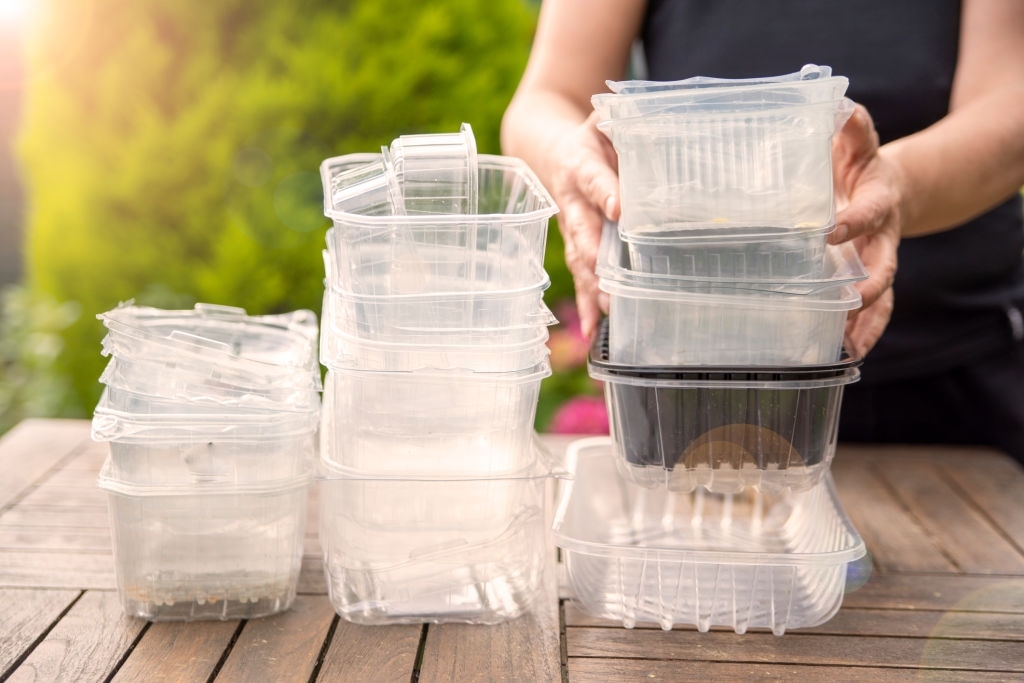How are new rules and regulations changing the use case for plastic packaging?
The EU has recently announced a revision to current regulation to put an end to wasteful plastic packaging, boosting reuse and refill options and making all packaging recyclable by 2030. And it is not before time: according to the European Commission, almost 26 million tonnes of plastic waste is generated in Europe every year, with 87 per cent of Europeans worried about the impact of plastic products on the environment.
Goods need packaging to be protected and safely transported, but packaging and packaging waste have a significant impact on the environment and use of virgin materials. The amount of packaging waste is growing, frequently at a faster pace than GDP. Packaging waste increased by more than 20 per cent over the last ten years in the EU, and is forecast to soar by another 19 per cent until 2030 if no action is taken.
To add to the concern, a recent report from the Organisation for Economic Co-operation and Development (OECD) shows that, while rising populations and incomes are driving a relentless increase in the amount of plastic being used and thrown away, plastic pollution is mostly caused by weak regulations and inadequate collection and disposal of larger plastic debris.
Only nine per cent of plastic waste is recycled, while 19 per cent is incinerated, 50 per cent ends up in landfill, and 22 per cent evades waste management systems and goes into uncontrolled dumpsites, is burned in open pits, or ends up in terrestrial or aquatic environments, especially in poorer countries.
What are the new EU regulations?
The new rules aim to stop the trend of increasing plastic usage. For consumers, they aim to ensure reusable packaging options, get rid of unnecessary packaging, limit overpackaging, and provide clear labels to support correct recycling.
The headline target is to reduce packaging waste by 15 per cent by 2040 per Member State per capita, compared to 2018. This would lead to an overall waste reduction in the EU of some 37 per cent compared to a scenario without changing the legislation.
To foster reuse or refill of packaging, which has declined steeply in the last 20 years, companies will have to offer a certain percentage of their products to consumers in reusable or refillable packaging. For example, takeaway drinks and meals or e-commerce deliveries. There will also be some standardisation of packaging formats and clear labelling of reusable packaging and, to address clearly unnecessary packaging, certain forms of packaging will be banned, such as single-use packaging for food and beverages when consumed inside restaurants and cafes.
Many measures aim to make packaging fully recyclable by 2030. This includes setting design criteria for packaging, creating mandatory deposit return systems for plastic bottles and aluminium cans, and making it clear which very limited types of packaging must be compostable so that consumers can throw these to biowaste. There will also be mandatory rates of recycled content that producers have to include in new plastic packaging. This should help turn recycled plastic into a valuable raw material, as already shown by the example of PET bottles.
According to the European Commission, these measures could mean that the cost of environmental damage for the economy and society would be reduced by €6.4 billion relative to the baseline 2030.
Proactive ways for businesses to reduce plastic waste
From a UK perspective, almost 100 billion plastic packaging items are thrown away each week, with just 12 per cent thought to be recycled, according to a recent Statista report.
To help tackle the issue, in November 2022 the UK government released a report revealing plans to reduce plastic packaging waste, accelerating plans to make everything reusable and recyclable by 2030. Additionally, from October this year, single-use plastics such as plastic plates, trays, bowls, cutlery, balloon sticks and certain types of polystyrene cups and food containers will not be able to be sold by any UK business.
Other potential future measures include banning wet wipes, sachets and tobacco filters, as well as banning plastic in these items and mandatory labelling on packaging to help consumers dispose of items correctly. However, it does not apply to pre-packaged food items, as they will be in the Extended Producer Responsibility Scheme, which aims to incentivise producers to use packaging that can be recycled to meet targets.
Steve Brownett-Gale, packaging expert and marketing lead at Lifestyle Packaging, says that businesses can and should be proactive in their pursuit of reducing packaging waste ahead of the ban.
Opening a conversation with customers
Firstly, although those in the retail and hospitality industry may have existing stock, instead of buying more disposable cups or containers for customers when they run out, they can instead ask them to bring their own reusable versions.
“Retailers and those in hospitality should allow themselves plenty of time to alert customers that they are slowly phasing out single-use plastics, issuing information on social media channels and in person,” explains Brownett-Gale. “While they might face an initial cost in purchasing their own containers, it will likely save businesses and customers money in the long run, and can even help to attract a new kind of eco-conscious customer to the business. In the meantime, businesses should focus on producing reusable cups or containers that feature their branding.”
Additionally, Brownett-Gale says that big retailers and wholesalers like Amazon should encourage customers to develop smart shopping and recycling habits.
Customers can shop smarter by purchasing fewer individual objects, instead making bigger purchases to reduce their carbon emissions. Equally, businesses can ensure customers develop smarter recycling habits by including labels on their products that tell the customer how they should be disposed of correctly, providing recycling facilities and offering additional literature and support online or in-store about their recycling schemes.
Engaging suppliers and providing training
Another way in which businesses can address their use of plastics is by rethinking their suppliers. For example, with people urged to ban unnecessary packaging, this could be the end of mini ‘travel-sized’ toiletries found in shops and hotels. For businesses such as these that use disposable single-use plastics, it is worth starting a discussion with the supplier to see whether there are other recyclable or reusable packaging options available, such as cardboard, paper, metal or glass. If a supplier cannot accommodate this change, then it may be time for a business to look elsewhere to ensure they reduce their use of plastic packaging.
Finally, Brownett-Gale commentsthat, with the Extended Producer Responsibility EPR scheme coming into play, companies who handle and supply packaging to consumers and businesses will have to cover the cost of recycling and disposing of their packaging. Given this new scheme, it is important that all staff members be educated on the correct way to handle and dispose of the packaging that is produced.
“Responsible businesses of all sizes must now take steps to record data about all empty packaging and packaged goods, create an account and register the organisation from July 2023, and pay an annual fee to the environmental regulator. Large organisations should purchase Packaging Waste Recycling Notes (PRNs) or Packaging Waste Export Recycling Notes (PERNs) to meet recycling obligations and prove waste was recycled correctly,” notes Brownett-Gale.
“From the top down, businesses should ensure employees get trained in recording the data required, or allocate specific staff to do so, to ensure all objectives are met and they do not face penalties.”
Although new legislation is on the horizon in the UK and the EU – and other economic powerhouses will no doubt be forthcoming with their own regulation – businesses have no excuse not to take the initiative and identify ways in which they can reduce plastic waste right away.





